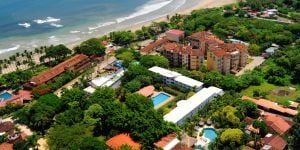The other side of the Costa Rican postcard
Last activity 10 March 2014 by Lapalmaman48
4074 Views
21 replies
Subscribe to the topic
Post new topic
Hi,
As a tourist in a foreign country, very often, we are enchanted with what we discover.
Living abroad is different. It's a rich experience but there are also some difficulties to face.
When people ask me for advice on living abroad, I then tend to say that one should also look at both sides of the postcard.
As an expat in Costa Rica, how would you describe the two sides of your Costa Rican postcard?
Thank you for sharing your experience,
Julien
I think it requires more than researching on the 'net or a quick vacation. Rent an apartment for at least month or two to se if you think it will suit you.
Don't purchase a home until you are sure that your decision is right, especially when a young family is involved. Many have no idea that for the most part, they can't legally work unless they meet the criteria, and that there is legal requirements in regards to living here legally. Check the recent costs that those who have recently applied to obtain healthcare through CCSS/CAJA and do not rely on websites that tell you it will be only cost $50 a month for your family...and expect these premiums to rise. Good education is not cheap, so you should take this into consideration, too. Choices are less if you think beach life is for you but remember, electricity is expensive, especially when running AC.
Being on a strict budget will be much more difficult than if you have no financial worries...
Living here without residency is not recommended and getting harder. After the first few times crossing the border to renew your tourist visa and drivers license, it is just a pain.
Spanish is the official language, so be prepared to learn and use it.
Withe the exception of good locally grown fruit and basic veggies, food is likely to be more expensive than 'at home'
Even in paradise the cost of living have risen. 
I agree with Kohlerias. I would also say that one must come with the attitude that you are going to adapt to the Costa Rican culture, not try to force it to adapt to your expectations. One of the biggest adjustments is getting used to attitudes about level of service. Service in many establishments (banks, restaurants, etc) can be slow. We've had an insurance agent make an appointment and not show up until the following day, and a Tico friend say he was coming over to see us but not show up (several times). Learn to "go with the flow" and not get angry. In the USA, people often are very explicit when we are unhappy with service, but in Costa Rica it is best to remain polite and tone down any complaints. Most of Latin America seems to have the "manana" attitude similar to that in Mexico. They also seem to have a similar custom to the oriental idea of "saving face". They do not like to be directly criticized and often avoid directly saying "no".
In restaurants, the waiter will typically not bring you the check until you ask for it ("La cuenta por favor") - it is considered impolite to bring the check before it is requested.
Often one must remind others of what they said they would do (including lawyers). Do it politely, but be clear about your expectations to have it get done. Then verify it was done.
If you are polite and do your best with what Spanish you know, Ticos will do their best to assist you.
In general, my experience in Costa Rica has been a very good one. I met my wife there, have built two houses, and still spend a lot of time in the country.
The biggest downside for me right now is the huge increase in crime. The country has a very poor quality police force, and thieves can currently operate with little fear of being caught. The number of crimes that are solved is easily below 5% - which means you have a 95% chance of success as a thief.
Also, the country's legal system needs updating. Stealing anything below $1,000 isn't even considered a serious crime. So the police will take your report and then literally do nothing. Do not expect the police to help you.
The constant need to watch all of your belongings is very tiresome. I wish that there was a solution in sight, but I think it will be years until things change and the legal system is updated. I think that this is going to catch up with Costa Rica, and their current status as a preferred destination for expats is going to change as more and more people get robbed.
For people who want to live in Costa Rica, be sure to get a good alarm system with armed response and an intimidating dog. These are currently the two best deterrents to crime.
I agree with ALL of the above comments 100%!
Redbeard wrote:
"Learn to "go with the flow" and not get angry. In the USA, people often are very explicit when we are unhappy with service, but in Costa Rica it is best to remain polite and tone down any complaints. Most of Latin America seems to have the "manana" attitude similar to that in Mexico. They also seem to have a similar custom to the oriental idea of "saving face". They do not like to be directly criticized and often avoid directly saying "no". "
THIS is excellent advice so really take it to heart and remember it! For most of us the "mañana" attitude is very hard to adjust to and this of course slides into the other attitude of people not always doing good work or not being reliable as to doing what they said they would do or showing up when they said they would.
Here's a case in point:
I am not an expat in Costa Rica currently (though I have been in the past and will be again soon). So I was coming down to do some work on a property and I had a guy I consider a good friend (Tico) agree to help me do some work. I was making the trip particularly to get this work done and was totally relying on this friend to help me do it. for a good wage. We are real friends, he's been to my house and me to his many times, our wives hung out together, we always see each other when I visit, we keep in touch via email, etc.
So I get there and call him up (he knew when I was coming and that I had a limited time to get the work done while I was there, which involved hiring others etc.). So I get there and he goes, "Sorry, I can't do it. I got another job."
Now, I understand that another better paying and longer lasting job takes precedent for someone who's employment comes and goes. So I wasn't mad about that, just very disappointed.
What I found harder to accept was that he made no effort to find someone else to help me get the job done! He just bowed out "can't do it" and that was that. See, if I was in his position I'd have not only apologized profusely (he didn't), I'd have gone way out of my way, knowing I was leaving my friend in the lurch, to find someone reliable to replace me.
So this is the attitude in Costa Rica. The Ticos just don't react to things or do things the way we would and we have to accept this even though it can be quite maddening and frustrating at times.
I know another guy (American) who built a home in Costa Rica, took early retirement from a good job to move there, and then hated it so much after 6 months to a year (I forget how long it was) that he put his home up for sale and scurried back to the U.S. to get his job back.
He said the main problems were that people didn't show up to do the work they were hired to do, on time, and that you couldn't rely on them to do good work. One of the things he had problems with was a leaky roof in the rainy season and so you can imagine how the lack of reliability and good work could be VERY frustrating when your roof is leaking every day while you wait for promised help.
But there is another side to his story which is this:
He never learned to speak Spanish and didn't make any Tico friends nor many friends at all. He lived alone and stayed home most of the time because he had almost no friends to visit or vice-versa. He also was very un-accepting of the culturaly differences as outlined in this thread! That is a recipe for failure as an expat in Costa Rica.
So here is my advice:
1) Learn Spanish. There are Spanish schools all over so spend a grand or so and take a month course to get a good start on learning Spanish - which usually involves staying with a host family where you are immersed in the language and HAVE to speak it, or try. Practice is key!
2) Make up your mind that you're not going to get angry and frustrated when things don't go as you would like them to with people you hire to do things such as install cable, install telephone, install internet, fix your roof, etc etc. As someone above suggested, do remind them politely that you expect them to do what they said they'd do, but don't yell at them because that will get you nowhere in Costa Rica. Nowhere is the adage more applicable than in Costa Rica: "You can catch more flies with honey than with vinegar." Ticos will just drop you as a client if you yell at them, in many cases. Since Ticos don't get mad they expect you to not get mad and if you do, they don't want to deal with you.
3) Live there for as long as you can (3 months to a year!) before you make any commitment to move there. This especially applies to buying real estate. Even though I have real estate for sale, I ALWAYS tell people NOT to buy until they've lived there for a few months first!
4) Once you move there, do your best to meet people, especially Ticos, and be a part of the community. While it is possible to just stay among gringos, that is not your best bet for happiness. Learning to speak Spanish and getting to know the locals is one of the greatest things about living in Costa Rica, so do your best to learn Spanish and meet Ticos and be a part of the community!
With your experience from another country you can probably contribute greatly to the community. Perhaps you can organize other gringos to organize a drive for school supplies or some other charitable cause.
5) One of the other sides of the postcard, as someone mentioned already, is the crime. While there is no way to stop the crime I think we as extranjeros can protect ourselves to some extent, not only by having guards or dogs and alarms and lights, but also by being a good community member and giving back to the community, helping by volunteering at the school or wherever else we can, and helping organize charity events. This is a good way to be seen as "buena gente" (good people) by the community and by doing so you have a better chance of not being targeted by local criminals. Again this is not a total solution, but it's bound to help. I knew a guy who lived in a beach community near Manuel Antonio where burglary was a big problem and he was one of the few who never was stolen from. Why? He believed it was because it was well known that he was doing good things for the community.
These are my suggestions for dealing with "the other side of the postcard".
San Ramon;
I love your attitude and response. We just returned from Costa Rica, were only there for 20 days and had a lot to accomplish. We decided that if we got one of our tasks done per day that would be wonderbar and if it took more .... hey, that is Costa Rica. We had to make six trips into San Jose to the lawyer, bank, police, etc. It is a three hour return driving trip from our community and then by the time you add the time to accomplish part of the task the day was gone. It is a hard concept to be "on vacation" and get this type of work done but not only did we get it done we felt very good about it. My wife and I have taken two Spanish classes in Canada and will continue when down there. This is IMPERATIVE!!! We support the local community and church with donations from afar and will do the same when we arrive as well as volunteering in person. Anyone thinking of coming from Canada or the USA will have to adjust their attitude greatly to get by every day. The sooner one does that, the sooner one will experience the "Pura Vida" lifestyle.
TerrynViv wrote:San Ramon;
I love your attitude and response. We just returned from Costa Rica, were only there for 20 days and had a lot to accomplish. We decided that if we got one of our tasks done per day that would be wonderbar and if it took more .... hey, that is Costa Rica. We had to make six trips into San Jose to the lawyer, bank, police, etc. It is a three hour return driving trip from our community and then by the time you add the time to accomplish part of the task the day was gone. It is a hard concept to be "on vacation" and get this type of work done but not only did we get it done we felt very good about it. My wife and I have taken two Spanish classes in Canada and will continue when down there. This is IMPERATIVE!!! We support the local community and church with donations from afar and will do the same when we arrive as well as volunteering in person. Anyone thinking of coming from Canada or the USA will have to adjust their attitude greatly to get by every day. The sooner one does that, the sooner one will experience the "Pura Vida" lifestyle.
Thanks for the vote of confidence. It sounds like you are doing things right and will like living in Costa Rica. I have been having "working vacations" in Costa Rica for years! I took probably 5 working vacations to Costa Rica before I found the property I liked, having looked at several a day during many one or two-week working vacations. Now it is always things like property management and improvements and taxes and so on. There's always some kind of work I need a vacation to accomplish! ;-D
I suppose when we finally move there we will also have a lot to do for a long time before we can finally "settle in" without a huge list of important things to get done. But aside from a few major snags that caused me to lose my cool (like when the bank wouldn't let me withdraw my money! - long story! - but I finally won out) , in general I just take one step at a time and keep inching forward when I have to get something done. One does have to learn patience.
One thing I've noticed though is that the patience of Ticos rubs off on me. I am more patient when there than I am up here in the USA. For one thing, being in Costa Rica puts me in a good mood to begin with.
I've just been here six months and so far, so good.
What I like about Costa Rica is there are a lot of places to visit and things to do so you will never get bored.
On the downside, Living here is a bit expensive than home but average when you compare with other European countries and the US.
I never encountered nor been a victim of a crime (and hopefully never will). I walk from and to work every day (for exercise) and the people I meet are nice and amiable. As with any other countries/cities, you have to be vigilant and don't put yourself in harms way. There are areas to avoid and places that are safe. Don't flaunt if you don't want to be noticed (especially by criminals).
Apartment Rental Costs are High in some areas (Some are ridiculously high). I suggest before settling in permanently, do your research not only online but stay in costa rica and immerse yourself with the culture and the way things are done here.
Residency applications takes quite a while to process and the reason they gave me is that they have a Backlog of Applications.
I agree with all the previous posts, you have to adapt, otherwise stay where you are.....
I am enjoying my stay and hope to stay longer, even for good.
I love Costa Rica and the people, but the high costs of survival are a bit depressing. Car prices are astronomical, groceries are the same as in North America (and the selection is not that good).
The import taxes imposed by government here makes everything very expensive. The salesman down at the Monge furniture store told me that the import taxes on a refrigerator are over 80%.
Petty theft is considered a part time job for some Ticos "and who can blame them", with many Tico's only earning $14. per day "the exact cost of a bag of rice". Imagine working eight hours just to buy a bag of rice. My suggestions: Live in a gated/guarded community. Never go out at night, especially to drive a car. Never walk on a deserted beach even in daylight. Also, never tell anyone you are an American (Gringo), it's much safer to say you are a Canadian, especially if you live here full time.
Lapalmaman48 wrote:I love Costa Rica and the people, but the high costs of survival are a bit depressing. Car prices are astronomical, groceries are the same as in North America (and the selection is not that good).
The import taxes imposed by government here makes everything very expensive. The salesman down at the Monge furniture store told me that the import taxes on a refrigerator are over 80%.
Petty theft is considered a part time job for some Ticos "and who can blame them", with many Tico's only earning $14. per day "the exact cost of a bag of rice". Imagine working eight hours just to buy a bag of rice. My suggestions: Live in a gated/guarded community. Never go out at night, especially to drive a car. Never walk on a deserted beach even in daylight. Also, never tell anyone you are an American (Gringo), it's much safer to say you are a Canadian, especially if you live here full time.
I do agree that prices have gone up a lot the past several years and it is not "cheap" like it was once.
As to crime though I don't see it being nearly as bad as you state. "Never walk on a deserted beach even in daylight"?? Hmmm. Are you referring to a particular beach? I have never ever had nor seen any problem at a beach in the daytime. I have heard of a couple incidents over the years of cars being broken into near the beach, but never of personal robbery. I'm not saying it hasn't happened but to make a blanket statement like that I think misrepresents the safety of Costa Rica.
You sound very unhappy living in Costa Rica. Have you considered or tried living somewhere else?
Samarmon - "I do know that the truth hurts" but living in denial is not a safe thing to do in any country. It is basic knowledge at any beach in Costa Rica that you can't go in the water and leave anything valuable on the beach, those young Costa Rican guys are very fast runners. We've had a few daylight robberies at the beach but nobody was injured. I know a man and his wife who were duct taped and lay on the kitchen floor for two days, lucky the AC was on and the cleaning lady had shown up on her day to work, otherwise they would have died. We can't pretend that these type of things do not happen in Costa Rica, and my discussing them doesn't mean I'm not happy living in Costa Rica.
I do understand that a high percentage of expats choose to live in denial, which is easy to understand. They made a major decision to move to Costa Rica and want to justify what they've done, they don't want to be phoning home and telling family the neighbour just got robbed at the beach, that's the last thing they'd do. Despite the increase of crime against Gringos "which I'm not", Costa Rica is still a great place to retire if you can afford it.
Lapalmaman48, I don't think I'm in denial, but I know a lot of people who have lived for many years in Costa Rica in various locations and the worst crimes I have heard of (among all those people) are break ins. Leaving your stuff (like $) on a beach and having it stolen is a lot different than your statement of "Never walk on a deserted beach even in daylight" which implies bodily harm. One would indeed be stupid to leave their money or valuables on a beach in any place, USA or Costa Rica, imho.
We will have to agree to disagree on whether or not I am in denial or whether or not you exaggerate the dangers. I have lived on the beach in 2 different areas of Costa Rica and never had a problem with crime, nor have my friends, except for the occasional minor theft or burglary.
Certainly violent crime can happen anywhere in the world but I think the statistics will show that it's a lot less likely to encounter it in Costa Rica than in the USA.
Go on line and investigate the murders of Gringos in Costa Rica, the Tamarindo area has the highest number of murders and missing people, some of which vanished in the middle of the day while walking on a beach. I don't think a url will post here or I'd give you a few sites as evidence.
It is absolutely vital that people are on their guard "at all times" in Costa Rica, day or night.
As wonderful as most Ticos are "some are involved in petty theft as a part time job". Much of Costa Rica's youth are living in extreme poverty with no hopes of ever securing meaningful employment, they have no choice but to steal. This was the message given at our church not too long ago "by a Tico pastor". In our neighbourhood we try to filter out those troubled young people and attempt to befriend them, buy them a pair of shoes or whatever, and let them know we care about their situation in life. Doing this goes a long way towards keeping the neighbourhood safer. I wish more expats would get involved in the local community, instead of driving around flaunting their wealth and grossly underpaying the people they hire to work on their properties.
Our home has been broken into, at various locations, so don't think being the nice guy in the community is going to make you impervious to crime. Nice folk know the not-so-nice folk...
Article today on qcostarica
Being respectful to the local young Ticos does not totally elimate crime, it only reduces it.
Living in a gated community is still the best way to avoid home breakins.
Lapalmaman48 wrote:Being respectful to the local young Ticos does not totally elimate crime, it only reduces it.
Living in a gated community is still the best way to avoid home breakins.
Maybe that's why gated community properties generally cost more.
That is a fact as that is where we are building. Everyone must make their own decision on what to do when they move to Costa Rica. We selected a gated community and are happy with the decision. Having said that we are already active in the surrounding community with the school, English lessons, Spanish lessons for ourselves, the local community awareness group, the local police, ICE, etc. You can make your own decision based on what level of immersion, security, and life style that you want. Please do not condemn ANYONE for their choice, after all we all make our own decisions whether another thinks it is right or wrong.
Lapalmaman48 wrote:Go on line and investigate the murders of Gringos in Costa Rica, the Tamarindo area has the highest number of murders and missing people, some of which vanished in the middle of the day while walking on a beach. I don't think a url will post here or I'd give you a few sites as evidence.
It is absolutely vital that people are on their guard "at all times" in Costa Rica, day or night.
As wonderful as most Ticos are "some are involved in petty theft as a part time job". Much of Costa Rica's youth are living in extreme poverty with no hopes of ever securing meaningful employment, they have no choice but to steal. This was the message given at our church not too long ago "by a Tico pastor". In our neighbourhood we try to filter out those troubled young people and attempt to befriend them, buy them a pair of shoes or whatever, and let them know we care about their situation in life. Doing this goes a long way towards keeping the neighbourhood safer. I wish more expats would get involved in the local community, instead of driving around flaunting their wealth and grossly underpaying the people they hire to work on their properties.
As a comparison, there were 554 murders in Canada last year, 14,173 in the USA, and 474 in Costa Rica.
Granted there are more in Costa Rica than there "should be" based on the size of the country, but still it's a small %.
Compare Costa Rica to the 2 countries it borders:
Panama 759 (a lot of gringos are moving there instead of Costa Rica)
Nicaragua 738 (also popular among gringos)
And just for good measure:
Ecuador 2,638
Colombia 14,746
Guatemala 5,681
Mexico 27,199
This article indicates that a lot of the murders are drug related and most of them are committed in San Jose' and Limon: globaljournalist.org/stories/2013/09/23/costa-rican-pura-vida-attracts-drug-traffickers/
Based on my research today online, a lot of the murders tend to be drug related; and the hotspots for crime in Costa Rica seem to be:
San Jose
Limon
Tamarindo
Jaco'
All numbers of homicides are based on 2012's figures from the United Nations Office On Drugs and Crime. They have increased since then but not astronomically and most homocides seem to be drug related, though certainly some are based on robbery.
And hence our gated community is not anywhere near samramon's examples. AGAIN I reiterate make your own decision based on personal experience. Reading posts on a blog does not prepare you for your own experience. Almost every post is tainted to the poster's own personal experience. Talk to the people who have lived there for a while, talk to the locals, spend some time immersing yourself in the community. If you find it was the wrong decision at least you did your homework! If it is the right decision ........ you still did your homework!!!!!
TerrynViv wrote:And hence our gated community is not anywhere near samramon's examples. AGAIN I reiterate make your own decision based on personal experience. Reading posts on a blog does not prepare you for your own experience. Almost every post is tainted to the poster's own personal experience. Talk to the people who have lived there for a while, talk to the locals, spend some time immersing yourself in the community. If you find it was the wrong decision at least you did your homework! If it is the right decision ........ you still did your homework!!!!!
Agreed. Even when people write me and ask if I still have a lot for sale, I say, "Yes, but have you ever lived in Costa Rica? You should go down and live there or at least have a long visit in the area in which you [plan to buy, and rent a house, don't stay in a a hotel!" People need to get a sense of what it's like to live there before they buy!
I also encourage people to read all the forums and read the guide books on Costa Rica, and then if they still decide to buy, get their own attorney for the sale.
Thank you for your insight. We purchased property in 2010 and at that time decided upon an attorney with references from others. You sound like you are well grounded and offer proper strategy. We did not hook up but it is good to know that there are people like you who can help us foreigners to adapt. Our Lawyer has been exemplary and he and his Secretary will be asked to our home in our new country. Your efforts on this forum do not go unrecognized although until one starts their journey to Costa Rica they may not be looking for someone with your wisdom. Thank You!
Geeeeese! you talk as nice as a Canadian "you surely can't be a Gringo"... LOL
I only first came to Costa Rica four years ago so I don't know everything. What I don't do is sugar coat anything, and
there are a lot of Expats who don't like the truth when I say it. I've never lived a life of denial and I'm too old to start now. If you every wish to contact me outside this blog my email address is retirecostarica@hotmail.com (and I think
you already know I'm a Canadian from Ontario). I'm in the process of having a duplex built in a gated community and I'm selling one unit for $45,000US (which also includes 50% ownership of the lot through a Corporation agreement).
If you know anyone who is interested you can give them my email address. I'm not a realtor or a developer, I'm just an honest retired Canadian who is offering the most amazing real estate deal in Costa Rica. It's an Eco home built by a Canadian contractor who has been operating in Costa Rica for over a dozen years, so the quality of construction wil be "fantastico". Thanks for contacting me, John
Articles to help you in your expat project in Costa Rica
 Work in Costa Rica
Work in Costa RicaA low unemployment rate and a strong economy set Costa Rica apart from its neighbours. If you have fallen in love ...
 The health care system in Costa Rica
The health care system in Costa RicaCosta Rica has received international praise for its modern healthcare system, and both citizens and legal ...
 Key facts for international students in Costa Rica
Key facts for international students in Costa RicaCosta Rica is an attractive and affordable country in which to study, with one of the highest literacy rates in ...
 Setting up a business in Costa Rica
Setting up a business in Costa RicaThe government's positive attitude towards foreign investment, as well as the country's developed ...
 Motorcycle Angel
Motorcycle AngelMotorcycle Angel
 Buying a property in Costa Rica
Buying a property in Costa RicaCosta Rica's political and economic stability, as well as its natural beauty and pleasant climate, make it an ...
 Retiring in Costa Rica
Retiring in Costa RicaMany retirees are attracted by Costa Rica's stable democracy, excellent healthcare, enjoyable climate, natural ...
 How To Become A Resident In Costa Rica
How To Become A Resident In Costa RicaResidency In Costa Rica - Types of Residency
Find more topics on the Costa Rica forum



